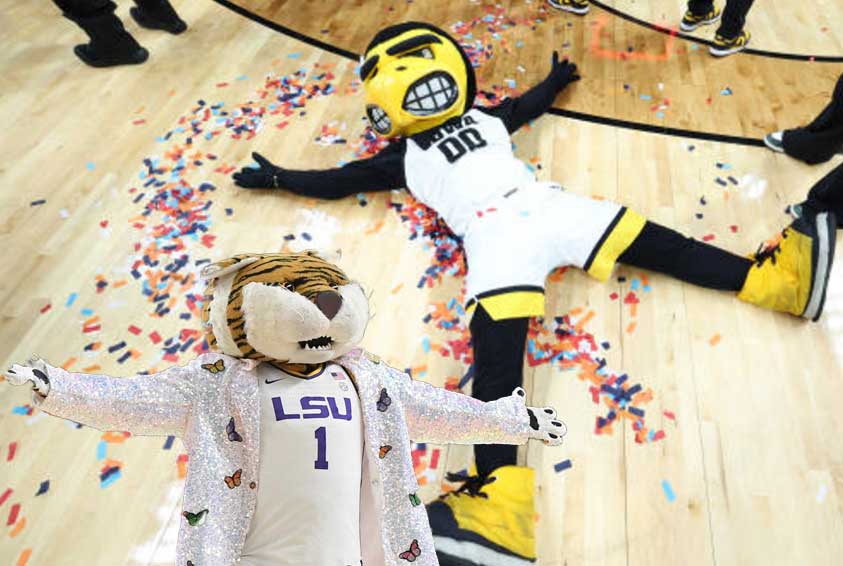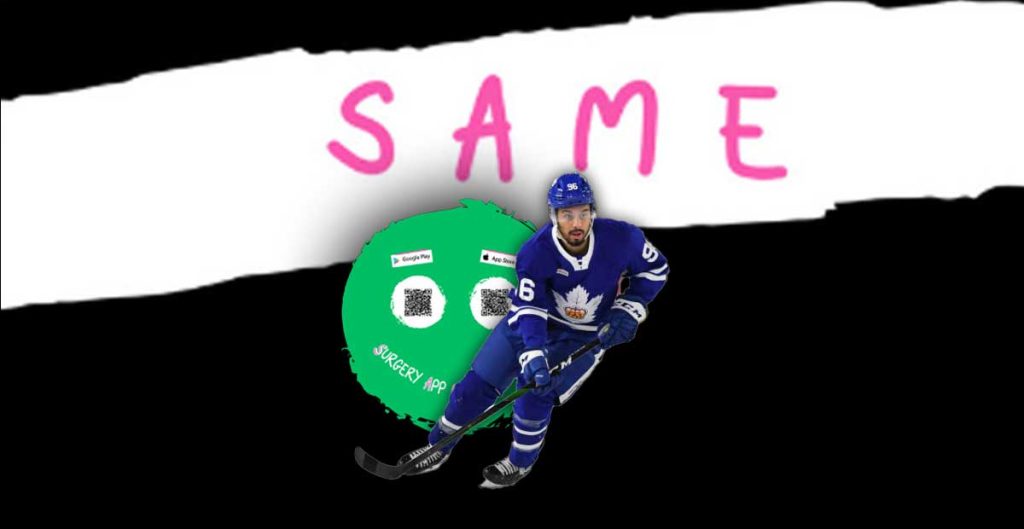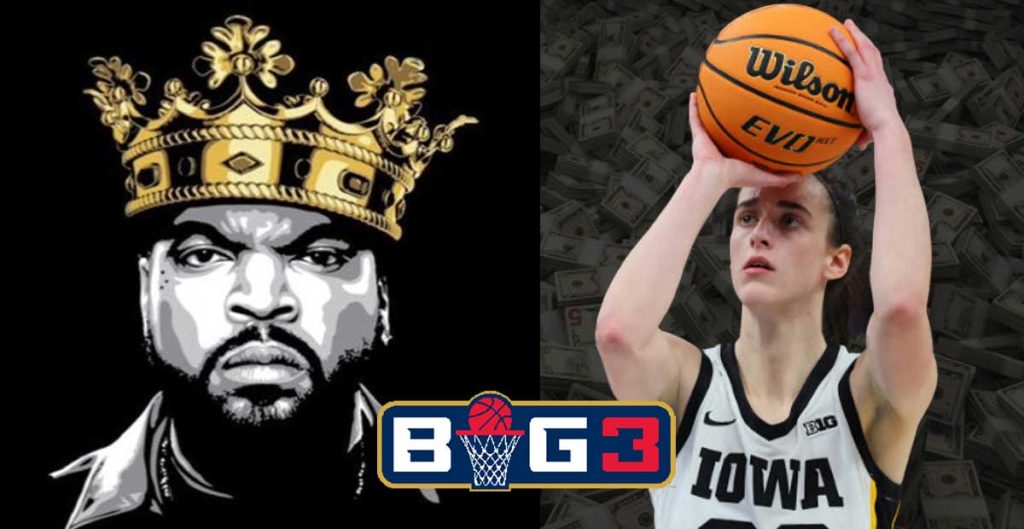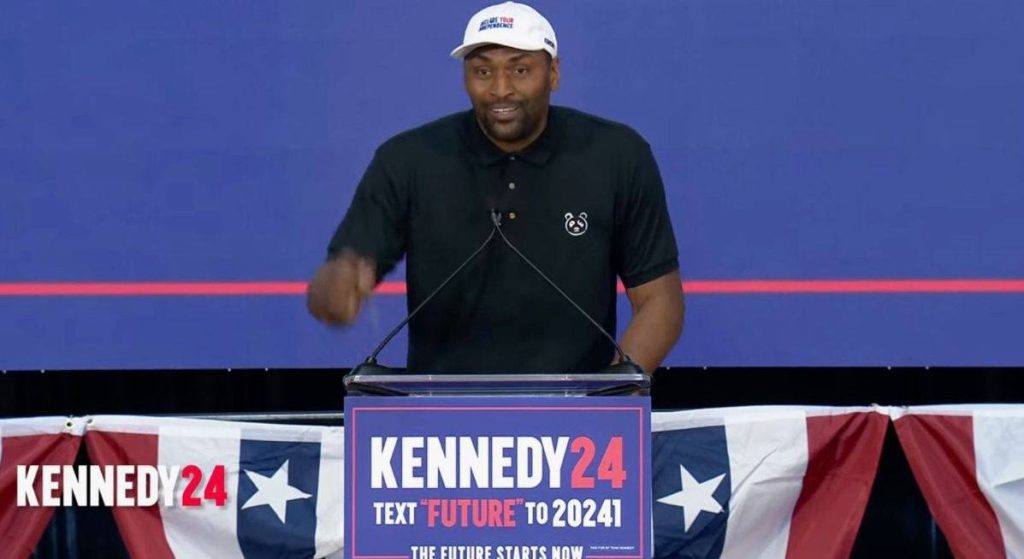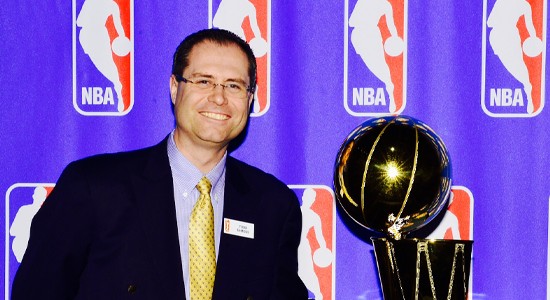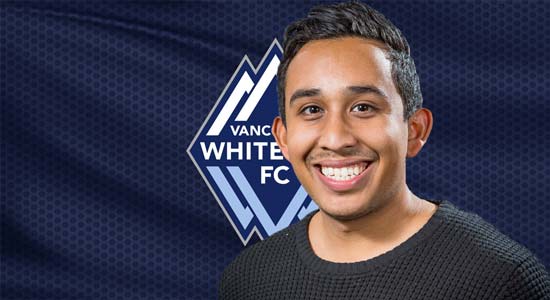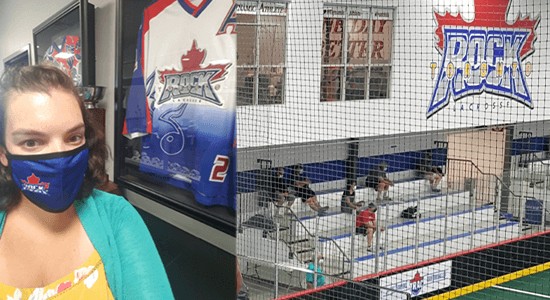
Toronto Rock Lacrosse Integrate COVID-19 Action Plan, Open Team Store & Have Rachel Wolff To Coordinate Events
Rachel Wolff | Event Coordinator | Toronto Rock Lacrosse Club

During this time without sports and events and the uncertainty of knowing when they will return, it helps to remind ourselves that there will be another live event in our future.
Rachel Wolff
Event Coordinator
Toronto Rock Lacrosse Club
Before we begin, give us a little update on how your job has changed since the World Health Organization (WHO) declared COVID-19 a global pandemic.
My day-to-day as described in this interview has changed immensely, since the escalation of COVID-19, and I have been working from home since March 16th. The National Lacrosse League regular season was cancelled as of April 8, and I am slowly receiving emails from event organizers letting me know that this year’s event has been postponed or cancelled.
During this time without sports and events and the uncertainty of knowing when they will return, it helps to remind ourselves that there will be another live event in our future.
Though we do not know when that will be right now, it gives us something to look forward to while we ride out the COVID-19 journey. I hope everyone is doing their part to keep us all safe – for now, we can cheer on our amazing health care workers and those in the essential services as we would our favourite teams and athletes.
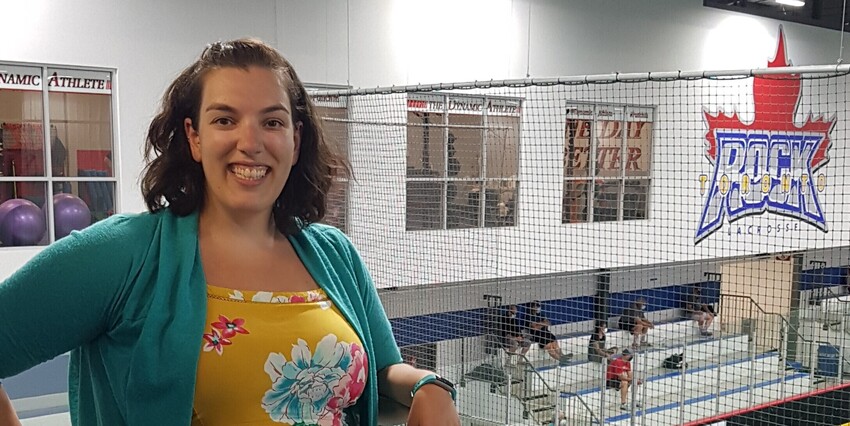
Tell us about your role as the Event Coordinator of the Toronto Rock Lacrosse Club.
Since we are a small team, my role as Event Coordinator encompasses a lot of different things.
I plan and execute all of the events we attend, which includes reaching out to events and securing our attendance, deciding what to bring and how our booth will be set up, packing everything we need (such as prizes, inflatable, etc.) and often attending the event as well. I also do most of the administrative work for the Toronto Rock Athletic Centre (TRAC) and the Toronto Rock office.
In-season, which runs from November (pre-season) to May (playoffs) I work closely with my boss to ensure all in-game elements are planned and executed properly.For the pre-season games, I secure our charity partner and put together a briefing, so all staff is informed of each game.
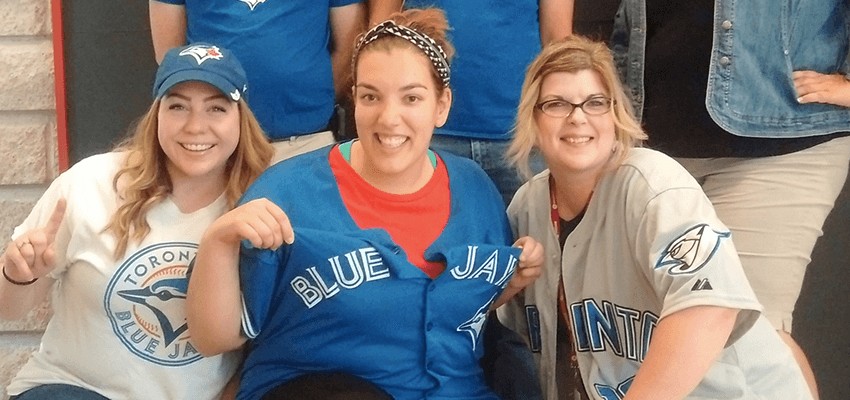
What does a typical day look like for you?
My role requires me to be organized since I am working on quite a few things at once. I am responsible for the team’s “info” account, so I am checking that inbox as well as my own. I’m often working on an excel spreadsheet for one thing or another – whether it’s keeping track of events or TRAC programs – or putting together a checklist.
During a game week, the office is always bustling.Things calm down in the off-season, but I still have busy spurts because of the events we attend. I treat our events in a similar fashion to how I approach game days.
Post-event, I complete a post-event summary that outlines how the event went, what we could do differently, and if we should attend again, as well as completing a budget that outlines costs incurred and any revenue
But COVID-19 changed things quite a bit
Events are pretty much non-existent this summer. While we were invited to take part in a few virtual events, we decided not to partake, and my focus has shifted more to the Toronto Rock Athletic Centre (which was already part of my job).
I worked with the Oakville Public Library to get the TRAC involved with their Summer Reading Program (we are providing prizes) and one of our players will be doing a Storytime as well. Through TRAC Athletics we run lacrosse programming out of our facility and unfortunately COVID-19 forced us to cancel our March Break and Summer Camps and our Spring/Summer Masters league.
In May, we started Rock Elite Lacrosse @ Home (a virtual training hosted by our captain, Challen Rogers, and our starting goalie, Nick Rose) and we have now returned to in-person training with our 2020 Summer Lacrosse Classes.
My role with the programming is mostly administrative – assisting with online registration and in-person sign-in, sending e-blasts to our database, organizing data and paperwork, etc.
I have also helped with our COVID-19 Action Plans (CAPs) for the Toronto Rock Athletic Centre and Toronto Rock Lacrosse Club as well as the Return to Play Plan for TRAC Athletics.
About The COVID-19 Action Plans
Something I realized fairly early on in the process was the government provided basic guidelines and recommendations, but many things were left up to our interpretation.
We read through a lot of government and private documents to determine what needed to be included in our own documents and the best layout to use. This is also when we established our Emergency Response Team, which I am a member of.
We started with the TRAC CAP first because we knew our athletic programming would return before our Toronto Rock office reopened (and the government was also allowing professional athletes to return to training, so our players would be returning to the TRAC).
We were then able to tweak the completed TRAC CAP for the Toronto Rock office. Both documents outline roles and responsibilities, procedures and controls, response for possible cases and contamination, measures in place to enforce social distancing, cleaning and disinfecting protocols and our Emergency Response Team.
Once the CAPs were completed, we started on our Return to Play Plan. US Lacrosse and Ontario Soccer released their own Return to Play documents, so we were able to reference these to help frame our TRAC Return to Play Plan in addition to using government resources.
We determined a Four-Phase approach was the best for us –
- Return to Training
- Return to Training with Modified Games
- Modified League Play
- Return to Lacrosse
The Ontario government announced on July 20th at 1:00pm that Halton region moves into Stage 3 effective Friday, July 24th which means amateur and recreational sports leagues may resume so long as they do not allow prolonged or deliberate physical contact between players or if they have modifications to avoid physical contact between players and limitations on the number of participants are implemented. The TRAC Athletics Return to Play plan adopts a Modified League Play format to adhere to government guidelines and restrictions, including the following protocols:
- Divisions will be capped at 50 athletes
- Game play modifications will be made to limit extended closeness and contact between athletes. Examples of game considerations include the draw/face-off and any positioning that would allow bodies to make contact or be positioned within 6 feet of one another.
- Physical distancing markers for player benches, penalty boxes, etc.
- Limited capacity (50) will be monitored and maintained in the building
- Spectators will be required to sign-in via COVID health check form and are subject to gathering limits, physical distancing and wearing face coverings over nose and mouth
- Frequent and enhanced cleaning and disinfecting of playing surfaces and equipment
The Reception
While some parents have expressed a bit of frustration (almost always about COVID-19 existing in general) the response we have received has been overwhelmingly positive.
Parents appreciate the extra precautions we have taken and understand new protocols have been put in place to keep them and their children safe. We take the temperatures and require a COVID-19 Self-Assessment Checklist to be filled out each day for all participants and any parents remaining on the premises.
Now that we have moved our training indoors (the first two weeks were outside), parents have easily transitioned to wearing masks and social distancing in the stands while watching their child train. Very grateful that everyone has been so understanding, as this is very new for us too!
When was the point you realized that you were meant to do this career? Take us through that realization.
I don’t think I became super interested in sports until I was maybe 10 or 11.
I remember the NHL was my first love, From my love of hockey, I discovered I could do a co-op with Rogers TV and cover the local OHL games.
This began my first career in sport: broadcasting. From the age of 16, I completed my co-op, continued to volunteer, and eventually worked my way up to the Producer of the Guelph Storm broadcasts at the age of 25.
I knew I wanted to focus solely on sports, so I explored going back to school for something and attended a Sport Business Management program, a post-graduate certificate for people who already had a university degree. Which landed me an internship with the Toronto Rock which eventually led to my full-time employment.
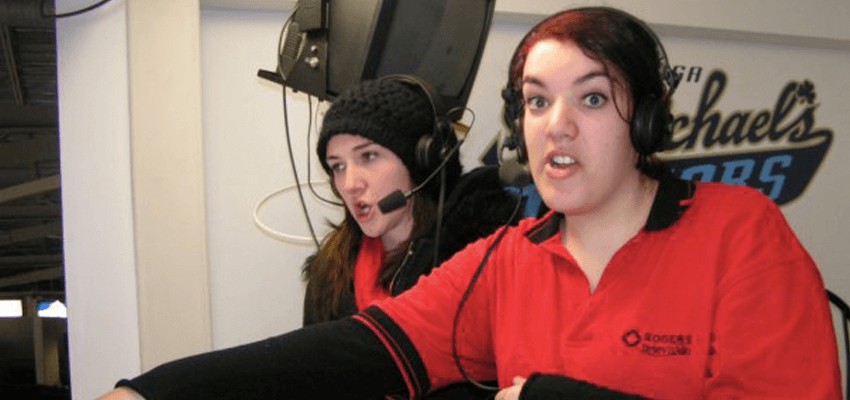
The sport event management side of the industry gets stereotyped for attracting detail-oriented individuals. Talk about this stereotype and if you’d characterize yourself this way.
Having detail-oriented people working on your team is incredibly beneficial when it comes to events, and I like to think I am one of those people.
Growing up, I was always the person asking “how” or “what if” and it turns out these are very important questions to ask working in event management. To me, being detail-oriented means you have thought of every scenario and prepared yourself for it to the best of your abilities.
It means taking a big idea and breaking it down into simple points. However, if you’re only ever looking at the little details you might miss the big picture. Therefore, you need to surround yourself with people who have various skill sets in order to execute an event to the best of your abilities. I believe collaboration and teamwork are really what fuel events.

Managing sport events almost always comes with challenges given the unpredictable nature of sport. Talk about how you overcome these challenges and have learned not to be hard on yourself for stuff that’s probably beyond your control.
I actually learned this while I was a TV producer. I would prep for my game throughout the week, make tons of graphics and highlight packs to show in-game and half of it would never make it to air.
Eventually, I learned that the most important thing I could do was loosen the reigns, stop focusing on what was going wrong, and expect things not to go according to plan.
Something is always going to go wrong; you can plan every detail and one thing will throw everything off of its course. In times like this, you need to take a deep breath and then make the next decision. And all your planning doesn’t go to waste because all that planning and preparing you did is going to assist you in making the next decision!
How does a team’s performance affect the work environment for you and your colleagues? What examples do you have to support this?
100% the team’s performance affects the work environment. When I was an intern, we lost our last 5 or 6 games at home and didn’t make the playoffs and the office was pretty bummed.
You still get your work done but there is a somber atmosphere at the office. Last year we made it to the Eastern Finals and even though we lost, the atmosphere in the office was electrifying.
Everyone was excited to be here, mundane work didn’t seem so mundane because we were in the playoffs, the players were fired up when they came to the office and that just set the tone.
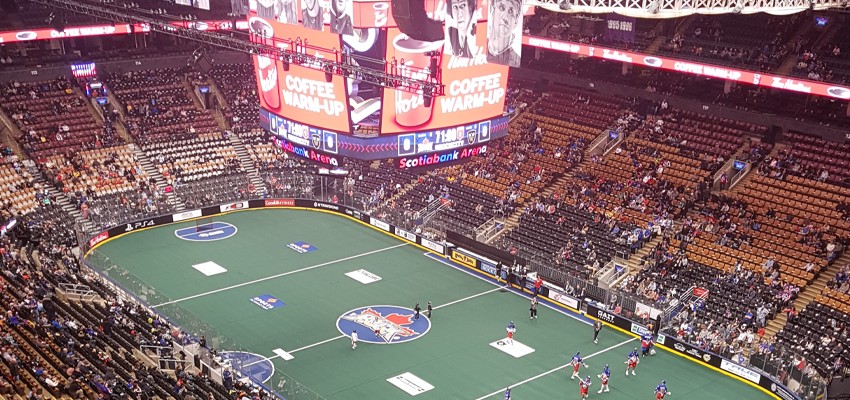
What surprised you the most about starting a career in the sport industry?
I didn’t realize how many different opportunities there were to work in sport! Before I started college, my goal was to work for a professional sports team or league in their communications department.
On my first day, my eyes were opened to the plethora of positions in sport and I honestly didn’t know what I wanted to do anymore. But as I learned about major events, I realized that was my true passion and working in events became my new aspiration.
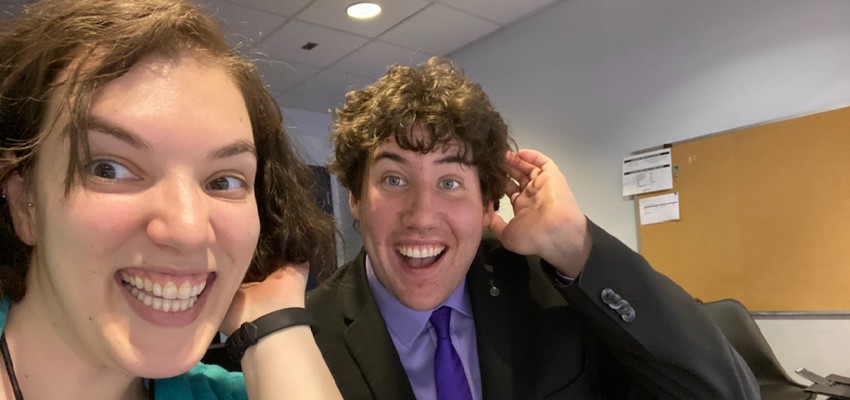
[get_current_post_author_pic_and_name]
Easing her mind and opening it as well, Rachel Wolff quickly realized the possibilities for working in sport are ENDLESS. That’s why she went back to school to find a career in sport, which she has! Unfortunately, this has been a difficult past few months for the entire Toronto Rock lacrosse organization (and the sport industry) with COVID-19. But as Rachel points out, the Rock are quickly working to implement their COVID-19 action plans and salvage what’s left of 2020. We’re super excited to see the grand opening of their shop next week. Stay tuned.
The Latest



